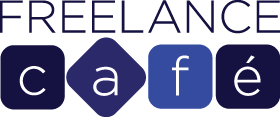More freelance radio show updates from Paul Ingles. -mia
+++++++++++++++++++++++
I’m hearing back from other programs now:
*PRI’S THE WORLD*
William Troop: Our program is accepting pitches from independents. The pitches can go to our two planning editors: Jennifer.Goren@bbc.co.uk and Aaron.Schachter@bbc.co.uk. We ask that anybody pitching keep in mind that we are an international news program, so pitches need to be on international angles and be newsy to some degree. Standard feature rate is $115 per minute aired. There are also rates for providing web content (pictures, slideshows, etc.) with the caveat there that the quality of the submissions (as assessed by our web team) affects how much we pay for them.
*HERE AND NOW*
Kathleen McKenna: Due to budget constraints, Here and Now, is not taking pitches from independent producers at this time.
*THE ENVIRONMENT REPORT*
Lester Graham: Yes, we’re accepting pitches from EXPERIENCED independents. Stories must be relevant to the everyday lives of the majority of the audience. We are a national show and stories must have a national perspective. Before pitching, producers should carefully read our Submission Guidelines: http://www.environmentreport.org/about/submissions.php%C2%A0 http://www.environmentreport.org/about/submissions.php
We pay $400 for a 3:50 piece (including lead) and an additional $40 for the same piece cut down to 2:15. We pay $40 for a spot and an additional $20 for a two-way for our daily show.
*MARKETPLACE*
John Haas: All three Marketplace programs are accepting pitches from independents and John is the pitch contact: jhaas@americanpublicmedia.org. The rates for features generally range between $300 – $600 depending on length and reporting difficulty.
John also shared these helpful notes for pitching to Marketplace:
Celeste Wesson, the senior producer for Marketplace, recently did a great workshop for some station reporters on pitching, and wrote up these suggestions. Thought you’d like seeing what she said.
Pitch workshop notes
What is a pitch? A reporter might say… a summary of the story; a sales pitch
From my POV as a show producer… The written pitch may be the only thing I know about you. So not only does it tell me your story idea, it also tells me how well you write, how you think, what kind of reporter you are. You’re not just selling the story, you are selling yourself as the storyteller.
If you eavesdropped on our pitch meeting, you’d probably hear us turning down pitches for reasons like these: I don’t understand what this story is about. That’s not new. Where’s the Marketplace? Too local. Can s/he write in our style?
Turning those negatives into positive pitch guidelines:
* The frame or angle is crucial – what’s the import, the context, and the approach * It’s now, it’s news, it’s fresh * It’s about money, business, the economy – or uses those as a lens on how we live * It’s clear why people all over the country would care * It’s written clearly, conversationally, even cleverly – and gets to the point
Here’s a list of things that may inspire your pitch. But by themselves, they aren’t enough:
* A question * An idea * An overview * An issue * An event (especially not a conference) * A character * An anecdote * An unattributed paragraph from a newspaper story
*FROM JARED WEISSBROT: SOUNDPRINT* is always open for documentary pitches — there’s a submission form linked on our website, and part of your proposal evaluation is based on finding the form :). Responses will generally be slow — production meetings are difficult to schedule and front-loaded with a currently-very-busy production pipeline. Pestering me does help you get results, is entirely appropriate, and will not arise my ire. Go ahead and guilt me — I can take it 🙂 jared@soundprint.org
YOUR BEST BET IS TO HAVE SOMETHING FOR US TO LISTEN TO. I cannot stress that enough. As far as pitches are concerned, we are currently in acquisition mode almost exclusively — especially if we haven’t worked with you before from soup-to-nuts. Our time is 25:30. We’ll listen to any length, but if your piece isn’t going to work at around 5/12ths-hour, you will likely have more success elsewhere. We do not run hour-long specials within the series, but we will take pieces that work at 29:00 (minus :30 for music bed and about 3:00 for host lead, credits, backs, and forward promotion). We will gladly work with you on reversioning longer-form pieces that we like. It’s doubtful that we’d work with you on reversioning longer-form pieces that we *don’t* like.
We pay more than the lower rates, and less than the highest rates, per produced minute (we know you gotta eat; but we’re a volume-buyer). We will gladly offer technical assistance, including some mixing&mastering assistance, without affecting your rate. This is for us, too — the flip side is that we often will request technical adjustments.
We have no set topics or themes that will make your piece more or less likely to be acquired. We like good, rich sound, clear and personal writing/storytelling, and stories which can translate/appeal to a national and international audience (along those lines, national and international rights need to be free and clear — if international is a problem, you have to let us know).
Hope this helps!
jw
Paul Ingles Independent Producer / Reporter NPR Liaison to Independent Producers www.paulingles.com 505-255-1219



